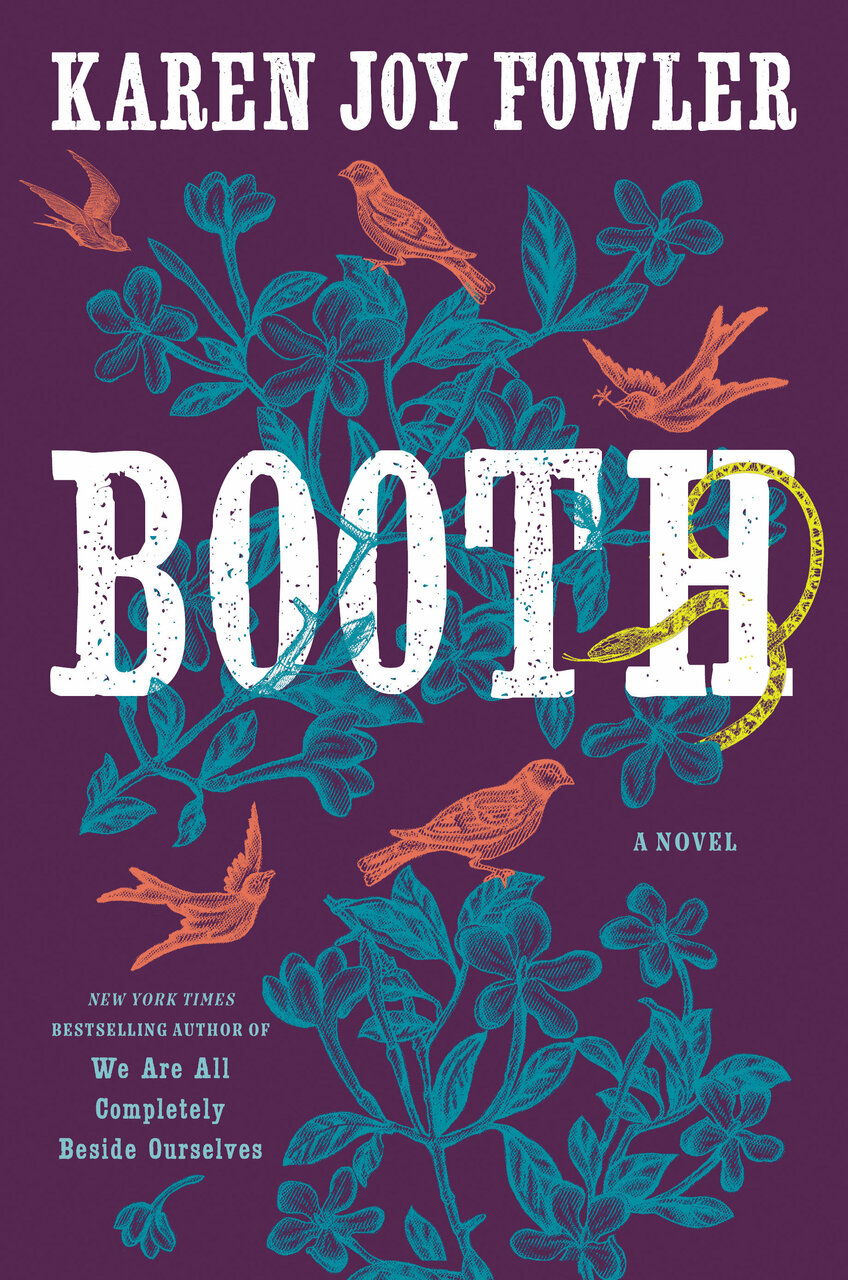
NOTE: Though Karen Fowler is a dear friend, I believe I’m capable of reading her work objectively. Nonetheless, I might have passed on reviewing BOOTH, had it not been for attacks in the New York Times and the Times Book Review that I considered failures not only in objectivity, but in basic reading skills. Consider this not so much a review as a riposte.
The Buddha said that the greatest cause of human suffering is the inability to accept the world as it is. I include under this heading the inability of some to read what is actually on the page, and not what they wish was there. I’m guilty of this myself. I might wish, for example, that Karen Fowler’s magnificent new novel had been written in past tense. But she has reasons for her choices, and she has long ago earned the benefit of the doubt.
To begin with, the book is called BOOTH. It’s the story of an entire family, not just one man who happens to have murdered a President. Even at 464 pages, there’s no room for all of the story, and it’s important to note the choices that Fowler made to get it to fit. The first is the use of an omniscient narrator who steps out of close third person to summarize, to talk about the future, or to catch a reaction from another character. This voice has a personality of its own, reminiscent of the one in MIDDLEMARCH. The second choice is to focus a good deal of her attention on characters who are not in the (literal) limelight—the Booth women. Childbirth is as important here as swordfights, emotional pain as transforming as ideology.
The novel begins in 1838, shortly before the birth of John Wilkes Booth, the next-to-youngest son. The paterfamilias, Junius Brutus Booth, is the one of the most famous actors of his generation, already beginning a long descent into alcoholism and madness. All of the Booth children, to greater or lesser degrees, will struggle with the same demons. The three older sons will attempt careers in the theater. Living in the shadow of his two older and more successful brothers, seemingly born with tendency to violence and cruelty, John only finds his true calling as an agent of the Confederacy.
Fowler’s great accomplishment here is to vividly invoke the mid-nineteenth century—through sensual detail, vocabulary, attitude, and incident—and simultaneously to remind us of its connection to the present. As Fowler affirms in her Author’s Note, there are more similarities than differences between the secessionists of 1860 and the insurrectionists of 2021. And the present-tense, faintly astringent voice of Fowler’s narrator is a constant reminder that we seem doomed, as a nation, to fight the same battles over and over again.
Racism is baked into the novel in much the way it’s baked into the U.S. Constitution (see THE 1619 PROJECT by Hannah-Jones et al.). Not Fowler’s racism—obviously—but that of the times and her characters, even the most well-meaning of them. Only in the final pages does it become clear that racism is what we’ve been talking about all along.
The novel is full of the pleasures of fine writing. The characters are vivid, unique, and unforgettable. The portrait of this stunningly dysfunctional family is convincing, heartbreaking, and even occasionally funny (“Edwin will not give up his own status as most put-upon Booth without a fight.”). The dialog is sharp, the research amazing. Fowler’s sympathy for her characters never wavers, even when they repeatedly disappoint her. And the last hundred pages are as relentlessly suspenseful as a thriller.
Come to this book without expectations and find the jewel in the lotus.
